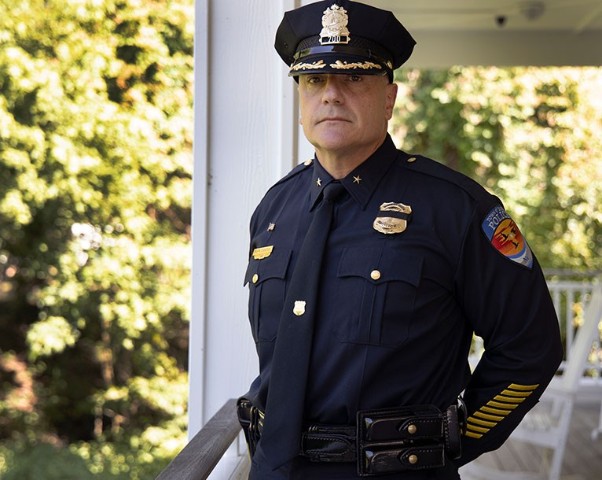Sound-to-sea community of Duck, N.C., relies on FirstNet to address unique communication challenges
Posted on June 21, 2019

What makes Duck, N.C., unique is the geography. It’s about 2.32 square miles with several miles of linear beach on the Atlantic side. North Carolina 12 is the only state road through the town. So, essentially, there’s one way in and one way out.
And that makes it difficult for us to navigate through and in and about town – especially during the busy summer months. We want to avoid a scenario where we need to turn around when both lanes are very well congested. That limits our response time.
So, we need to have confidence our communication is going to be reliable, accurate, safe and secure. And when my officers arrive on scene, I want to know they’ll be able to communicate with other agencies also responding.
That’s why we’re on FirstNet.
We use it for all our network systems. That’s our routers in our vehicles, which power our mobile data terminals in the cars. Our Axon fleet systems, for the cameras in the cars. Our automatic license plate reader program. And absolutely our cell phones.
Collaboration is key
Duck is a true sound-to-sea community. And because of our unique situation, we work very closely with the Fire Department, Surf Rescue and our emergency medical service, the Dare County Ambulance Service.
Our officers are often first on the scene, so they’re well-trained in multiple disciplines. We carry a lot of technological equipment -- including defibrillators for CPR response, medications for a variety of emergency responses and fire extinguishers. We need to be able to respond to any sort of event. And we need to be able to communicate and collaborate with our partners.
FirstNet gives us that ability. Working alongside Surf Rescue regularly in the summer months when the population is really dense, moving through traffic is a great concern. So, we need to be very accurate with our communication.
Serving the tourist community
We have about 400 permanent residents. But at the height of the season – June, July, and August – we can have as many as 25,000 people living in town.
That population changes on Saturday and Sunday – our changeover days. Renters are leaving Saturday and Sunday mornings and new renters are coming in in the afternoons.
Before Hurricane Florence hit last year, we had to prepare by evacuating the town. And we used our license plate reader system to assist us. The license plate reader is basically a camera system that tells us how many vehicles are moving through the town. It’s situated at the south border of Duck with Southern Shores and at the northern border, where Duck meets Currituck County.
With it, I can determine how many vehicles remain in Duck. That information is critical to my understanding who’s still in town – and the number of vehicles I need to move to get people to safety.
It took us several days but we were able to ensure that permanent residents, nonresidents, and visitors had all vacated the town for their safety.
The right solution
Before we adopted FirstNet, the costs and affordability for our license plate readers with a commercial carrier were a great concern. FirstNet was much more cost-effective. Plus, we have all the added benefits at our disposal. And there is no throttling of data on FirstNet.
In a word, FirstNet is comprehensive. It represents the total package for us. It’s about the day-to-day functionality. It exists as a force multiplier so that all of our agencies are on board and using the system cooperatively. It's a very well-coordinated program.
The more agencies that associate with it, cooperate with it and coordinate with it – the more viable it becomes.
John Cueto is the Chief of Police for the Town of Duck, N.C., and newly appointed Director of Region Ten for North Carolina Association of Chiefs of Police. Before moving to Duck, he served with the Bridgeport Police Department in Bridgeport, Conn. He retired after 28 years having served with the CT Fugitive Task Force, held the position as aide to the Chief in multiple administrations and has experience in emergency operations, canine unit, mounted patrol and SWAT Team. He earned a Master of Arts in Criminal Justice, from Sacred Heart University, where he also earned his undergraduate degree in finance. Cueto is a graduate of the FBI National Academy, Session 246, and attended the Senior Management Institute for Police at the Police Executive Research Forum (PERF), Session 46.